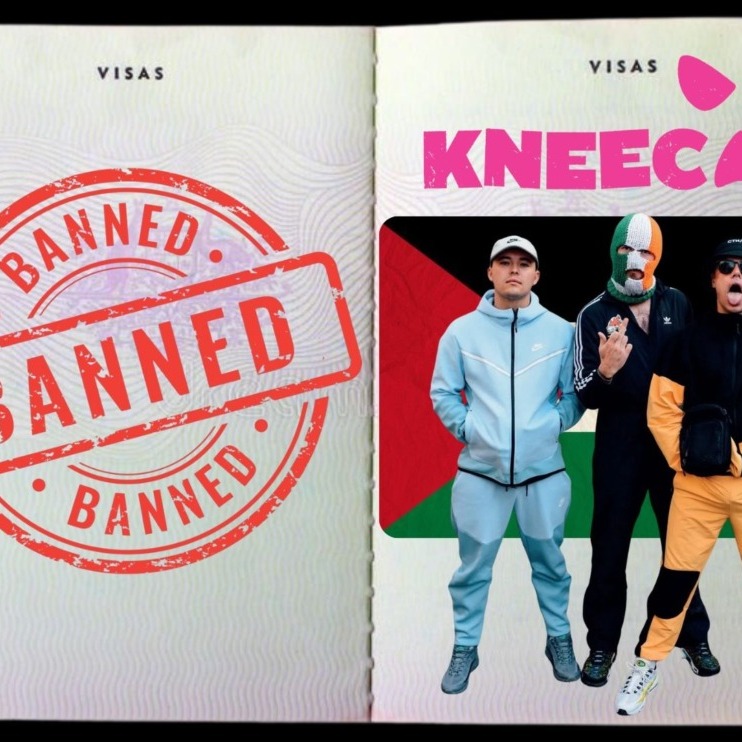
Canada’s banning of rap group Kneecap shows political censorship isn’t only American
Art is political
During a November 2024 performance at the O2 Forum Kentish Town in London, U.K., a member of the Irish rap band Kneecap picked up a crumpled flag that had been thrown onto the stage.
Now the whole group might be banned from Canada.
Canadian Member of Parliament Vince Gasparro announced in a video posted to X on Sept. 19 that Kneecap has “made statements that are contrary to Canadian values and laws,” and are banned from entering the country.
In his video, Gasparro references U.K. terrorism charges against Kneecap group member Liam Óg Ó hAnnaidh, who performs under the name Mo Chara, which have since been thrown out of British court.
The charges came after the rapper waved the Hezbollah flag during the November 2024 concert in London. Hezbollah opposes Israel and Western powers operating in the Middle East, calling for the destruction of the state of Israel.
However, it’s easy to see how Ó hAnnaidh could have ended up waving the flag without realizing what it represented. Waving flags thrown by the audience is common for music artists, including Harry Styles and Gracie Abrams.
So why has a small moment of contact between a rapper and a flag become such a large concern to the Canadian government?
Ó hAnnaidh says, “It was always about Gaza.”
The group often chant “Free Palestine” with crowds at their shows, and display messages on the backdrop of their stage like: “Israel is committing genocide against the Palestinian people.”
Unlike other artists who are staying silent, Kneecap is using their platform and audience to spread awareness of the ongoing genocide in Gaza and to raise money to support Palestinians in need.
Their support is loud. This kind of support makes a difference.
Last year, during a 12-day fundraiser, the group raised over £30,000 for food parcels to send to Palestine.
Kneecap responded to Gasparro’s announcement on X, calling the MP’s reasoning “baseless accusations to silence our opposition to a genocide being committed by Israel.”
Kneecap’s actions are “not expressions of art or legitimate political critique,” said Gasparro in his announcement. “They are dangerous endorsements of violence and hate.”
Kneecap worded it best when they called the announcement “outrageous” and “baseless accusations to silence our opposition to a genocide being committed by Israel.”
Gasparro can claim he is “stand[ing] firmly against hate speech,” but his actions prove he is only working to censor free speech.
The role of media companies in recent censorship cannot be understated.
The BBC chose not to broadcast Kneecap’s performance at Glastonbury after U.K. Prime Minister Keir Starmer’s comments that the group’s participation in the festival was “not appropriate.” Similarly, ABC’s decision to take Jimmy Kimmel off air came only after threats from the Trump administration.
These media companies seem willing to bend to the whims of political administrations, raising serious concerns over public access to information.
Although Kneecap’s music is still available for purchase and streaming in Canada, and videos of their shows are all over TikTok and other social media platforms, this issue should still be cause for reflection on our access to information.
Even in Canada, political censorship of artists can, and does, happen.
Videos of Kneecap’s concerts show crowds of invigorated young people in the audience. The music is full of Gaelic vocabulary delivered in snappy, catchy lines that engage youth in language revitalization and anti-colonial politics.
This ability to inspire younger generations may be what governments truly view as dangerous.
If our media is choosing to follow suit, we must take it upon ourselves to notice when governments are censoring artists and seek out censored art for ourselves.






